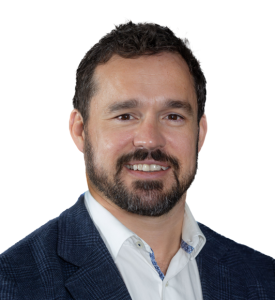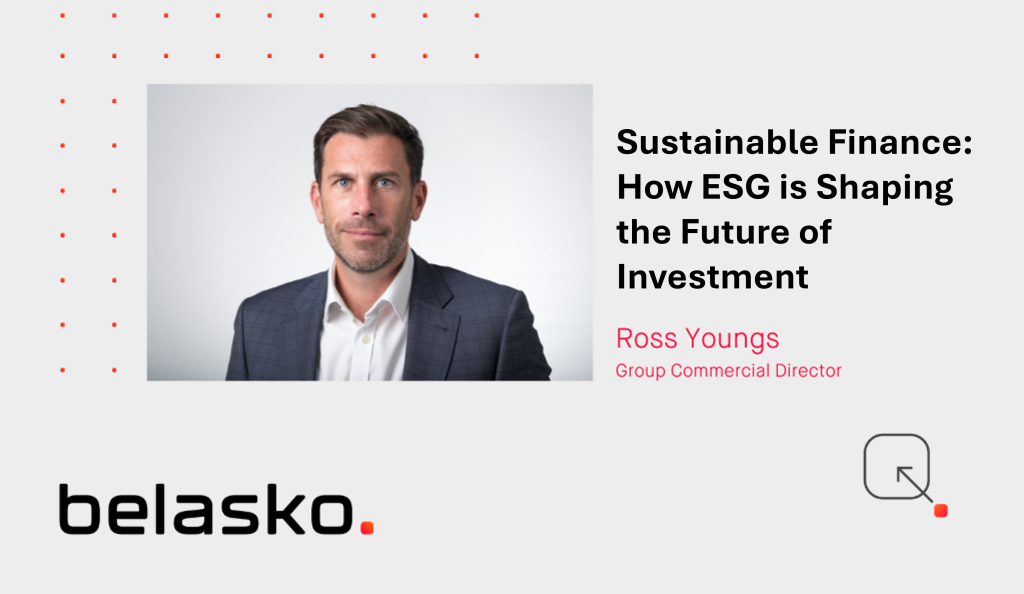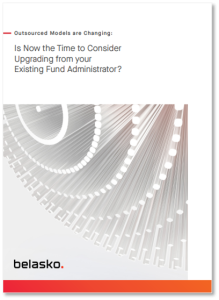Guernsey is well known as a premier host jurisdiction for the administration of private capital funds, offering a host of advantages that make it an attractive domicile for fund managers and investors alike. In this article, Hannah Dunnell (Guernsey Managing Director) explores the appeal of Guernsey as an alternative’s destination, typical fund structures the regulatory regime and how the use of a trusted third-party partner can complement the journey.
Why choose Guernsey as a fund destination?
Guernsey’s reputation as a leading financial centre is well established, with decades of experience in the international finance sector. The island’s robust tax, legal and regulatory framework, combined with its innovative approach to financial services, has made it a preferred location for alternative investment funds that ensures investor protection and stability. With track record and experience in hosting a wide variety of international alternative funds, both Guernsey and Belasko boast decades of experience in the real estate, venture capital and private equity sectors.
Guernsey funds benefit from unrestricted marketing into North America, the Middle East, and the Asia-Pacific region. Within Europe, Guernsey-based funds can access the European Economic Area (EEA) through the National Private Placement Regime (NPPR). With a total net asset value of Guernsey Funds at nearly £286 billion[1], Guernsey has built a solid reputation for private capital fund administration.
The total net asset value of Guernsey funds at the end of the quarter was £295.7 billion, an increase over the quarter of £3.2 billion (+1.1%). Over the past year, total net asset values have increased by £9.7 billon (+3.4%).
Whilst Guernsey has traditionally been the home of the alternatives administration sector and continues to service a large proportion of the world’s top alternatives houses, Guernsey has emerged as a top-class destination to new managers looking to launch a first, spin out or buy out venture, leveraging the broad diversity of experience and skills available in the island whilst offering familiarity to managers and investors alike. With an innovative, responsive and engaged regulator and industry, Guernsey remains the ideal destination for alternatives.
Typical fund structure
Fund managers have a plethora of options to choose from in Guernsey to suit their specific structuring needs, below we explore some of the most commonly utilised structures:
Limited Partnerships
Whilst Guernsey offers the ability to establish both incorporated (creating separate legal personality for the partnership), and unincorporated limited partnerships under the Limited Partnerships (Guernsey) Law of 1995, non-Guernsey partnerships are often administered from Guernsey.
Non-Guernsey partnerships, such as English or Scottish partnerships are often utilised to take advantage of the benefits of the law under which they are established, but which form part of a larger fund structure to facilitate say, carry allocations or co-investment opportunities.
Commonly referred to as a GP / LP structure, a limited partnership will appoint a general partner who manages its affairs, with a separate Investment Manager or Advisor often being appointed by the general partner. Typically, the general partner will be a Guernsey company, which can accept appointments from multiple partnerships, and which will often bring any non-Guernsey partnerships into tax residence in Guernsey by way of management and control being exercised in Guernsey. The rate of corporate tax in Guernsey for entities with no physical presence is currently set at 0%, notwithstanding any bodies that form part of a larger group that may be subject to Pillar II legislation.
Company and Trusts
Guernsey companies and trusts are widely utilised as ancillary vehicles in a larger fund structure for management and control purposes or as special purpose vehicles to facilitate asset ownership, financing or provision of management incentive plans. strategies. The use of Protected and Incorporated Cell Companies has become increasingly popular as an alternative to a more traditional GP / LP fund, allowing asset and investor segregation, without the need for additional vehicles that often add cost and complexity to a structure.
Guernsey law has its roots in common law and offers both practical ease and flexibility across all aspects of its framework.
Regulatory Categories and Fund Types in Guernsey
Most fund structures will require some sort of regulation, and Guernsey offers a flexible regulatory environment tailored to meet the diverse needs of the alternatives industry. If meeting the definition of a Collective Investment Vehicle (CIV), ie a diversification of both investments / assets and investors, then direct regulation will be required; if the definition of a CIV is not met then what is referred to as a ‘Fiduciary Exemption’ may be required to be obtained. Should your structure not require regulation, or require a ‘Fiduciary Exemption’, a GFSC regulated corporate service provider will be required to provide services to your structure.
The regulatory regime for closed-ended funds is divided into three primary categories: private investment funds (PIFs) registered funds (RCIS) and authorised funds (ACIS).
PIFs and registered funds offer the fastest route to market in Guernsey, with the local administrator (often referred to as the Designated Administrator) undertaking to the regulator that the fund promoter meets the criteria for licensing, known locally as the fit and proper test. The reliance by the regulator on the Designated Administrator to perform such checks, allows the utilisation of what is known as the ‘fast track’ regime, allowing achievement of regulatory status in as little as three days.
Subject to meeting the specific route 1, 2 or 3 criteria, PIFs also offer a convenient way to expedite timetable to market and offer a ‘light touch’ regulatory regime on the basis that the investor base does not contain retail investors, only those who are considered professional or institutional investors.
In contrast, authorised funds undergo a more rigorous review process. These funds receive their authorisation directly from the GFSC after a substantive suitability review. This category provides an additional layer of investor protection and may be preferred by managers looking to attract institutional investors.
Onshore and offshore counsel and advisors are typically appointed to advise on constitutional documents (e.g. LPA, Side Letters), marketing and wider tax considerations (i.e. fund formation), as well as on local regulatory compliance and supporting tax considerations.
Belasko in Guernsey
Guernsey offers a compelling combination of regulatory flexibility, robust infrastructure, and global market access, making it an attractive destination for private capital funds. By understanding the available fund structures and regulatory categories fund managers can make an informed decision about whether Guernsey is the right domicile for their first or next fund. Engaging in early discussions with advisors is crucial in navigating this process.
Our group headquarters are based in Guernsey, and our team on the ground have extensive experience in servicing global fund managers. We provide tailored end-to-end fund administration and corporate services that seamlessly support you with streamlining your back-office operations.
With a deep understanding of the Guernsey regulatory landscape and strong relationships with local law firms and advisors, we provide a personalised, reliable, and proactive service, helping clients navigate the complexities of private capital investments with confidence.
If you’d like to speak to our team about setting up your fund in Guernsey, please get in touch with Hannah Dunnell (Managing Director) at: [email protected]

[1] GFSC Statistics at the end of Second Quarter 2024, https://www.gfsc.gg/industry-sectors/investment/statistics



